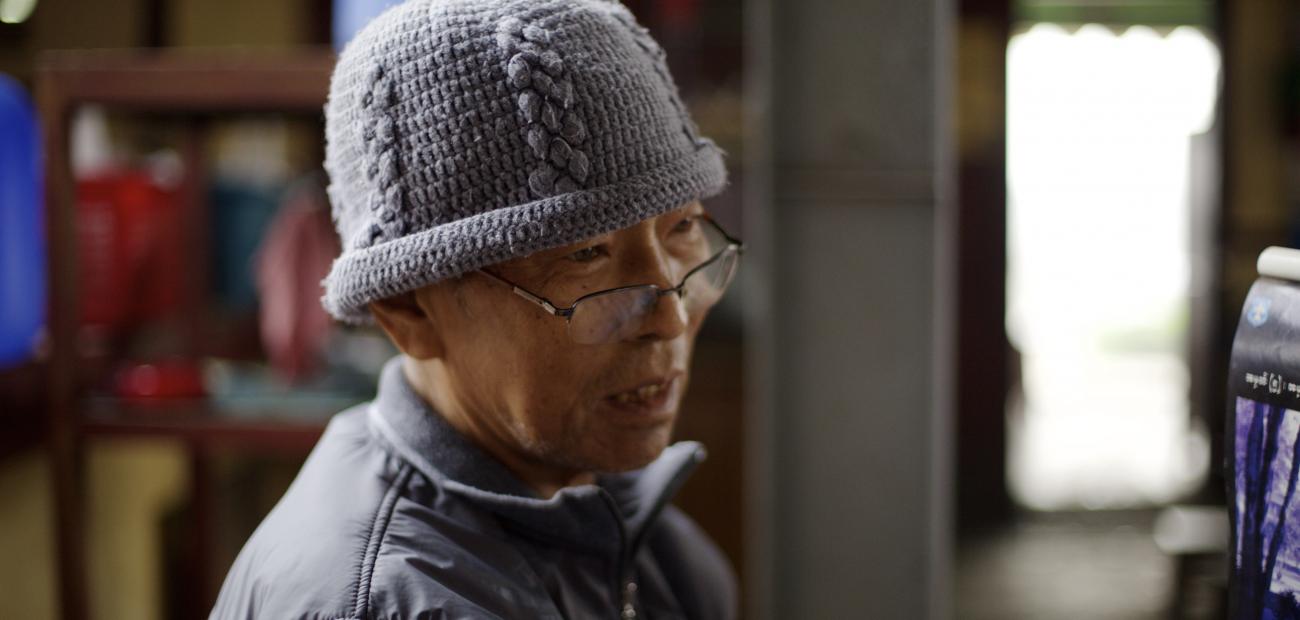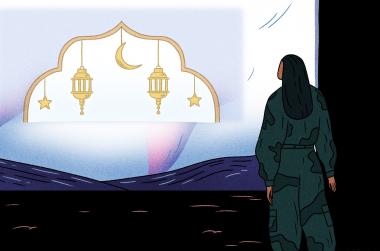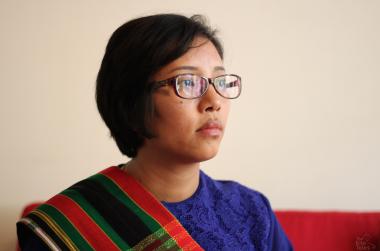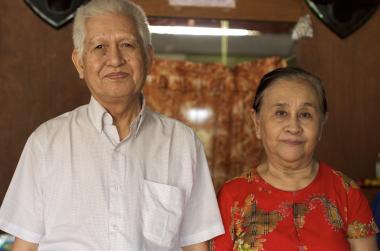Steam curls from stove-top pots, plates clatter and dough is slapped into the belly of a roaring oven to quietly puff into naan bread. But Albert Ho is oblivious to the breakfast rush at his family’s busy noodle shop, as he delves into memories of his childhood in 1960s Myanmar, when as a boy from a Chinese Muslim family from the Shan town of Lashio, he was taught his impeccable English by a group of beloved Italian nuns.
Leafing through precious mementoes from his youth he says his family’s faith was no impediment to them enrolling him in a convent school in Pyin Oo Lwin, giving him an English education that was much sought-after during the British colonial period and into the 1960s.
In one well-thumbed photograph he is a smiling young man, already graduated, standing with a diminutive nun who has the alert expression of a lifetime of teaching. There is an air of protectiveness in the young man’s pose as he escorts his old teacher on her last day in Myanmar, then Burma, where the military regime of dictator Ne Win had forced missionary schools to close.
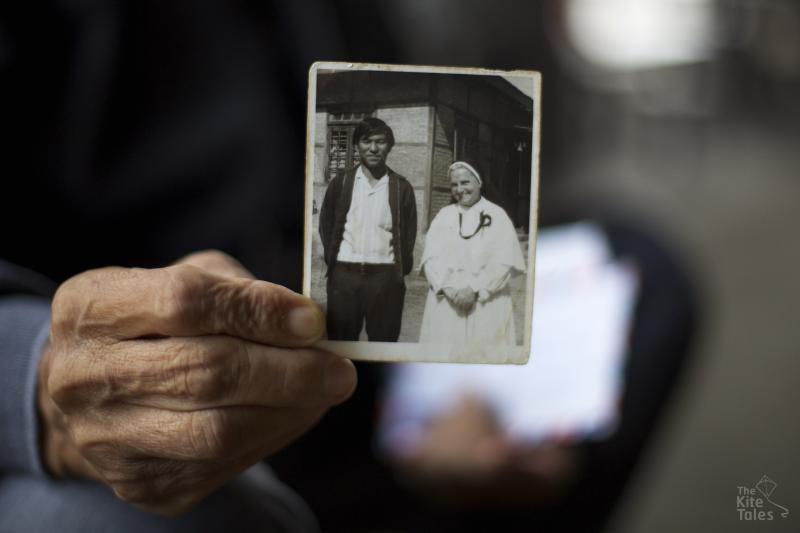
“This is my teacher, Mother Lina. This is 30th December 1970. That day I took this photo with her. We sent her to Lashio airport. Back to the headquarters, Brazil.
“I learnt English from three Italian mothers — Mother Lina, Mother Emma, Mother Angela.
“Every morning we said Roman Catholic prayers. Every morning we would pray ‘… thy will be done’,” he says, sifting out traces of the old recitations.
“I don’t know who gave this photo. Mother Lina died in Brazil decades ago. May her soul rest in peace.
“This mother inspired me.”
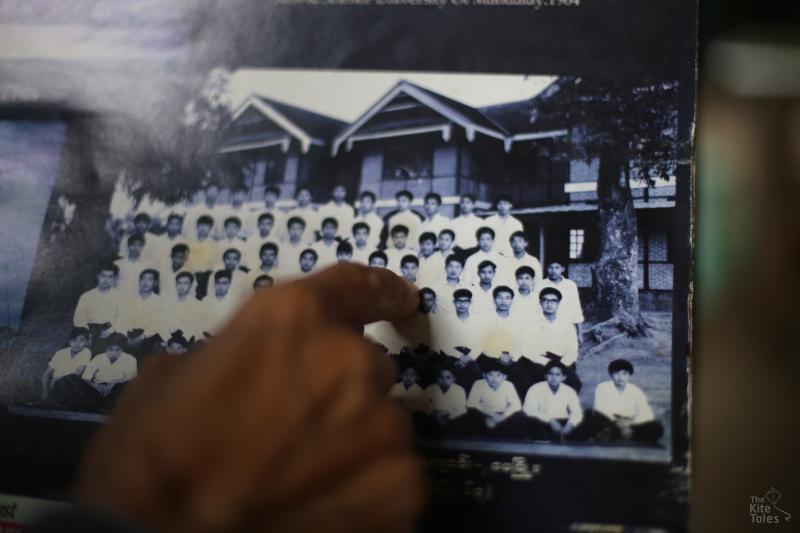
While a majority of people in the country are Buddhist, Myanmar has sizeable Christian and Muslim minorities that make up around six and four percent of the population respectively.
Islam in the country traces its roots back hundreds of years. Fishermen, traders and warriors were drawn to the country thanks to its position in sprawling trading networks that stretched from India and China to the Middle East.
Albert says his family are “Chinese Muslim — they called us Panthays,” referring to the term used in Myanmar to define the group.
“There are more than a hundred Chinese Muslim families in Lashio.”
Panthay Muslims are thought to have been part of the diverse religious make-up of Myanmar for generations, but they are not recognised as an official ethnic group in Myanmar -- an important bureaucratic hurdle for minorities -- though there have been efforts to gain more recognition. These efforts come despite religious tensions in recent years that have seen Muslims targeted for violence, including an outbreak of unrest in Lashio itself.
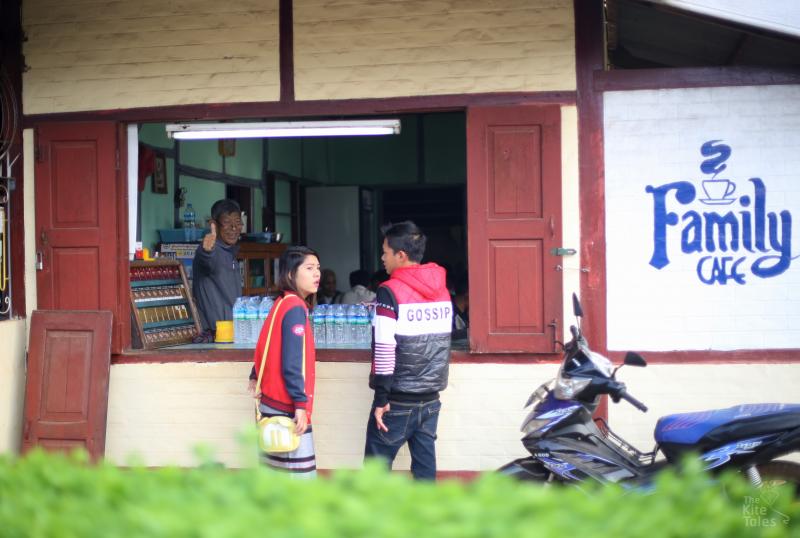
Panthays are most famous for the dish Panthay noodles, but Albert says most customers come to the shop for chicken soup and naan bread fresh from the oven.
“We only do breakfast,” he says as the tables fill up in the covered central courtyard of the sprawling restaurant.
“It’s been 72 years since we opened this shop.
“We came to live here in 1957. This place was chosen by our great grandmother. We liked this place because it’s at the top of the city.
“All of us here are family. This one is our youngest sister. This one is our youngest brother. We are seven.
“Maybe my daughters will (take the business over). I have two daughters. One is working in Kanbawza Bank. The youngest is studying in Indonesia.
“We are united. That’s why our shop is still going.”
(Interviewed October 2016)

